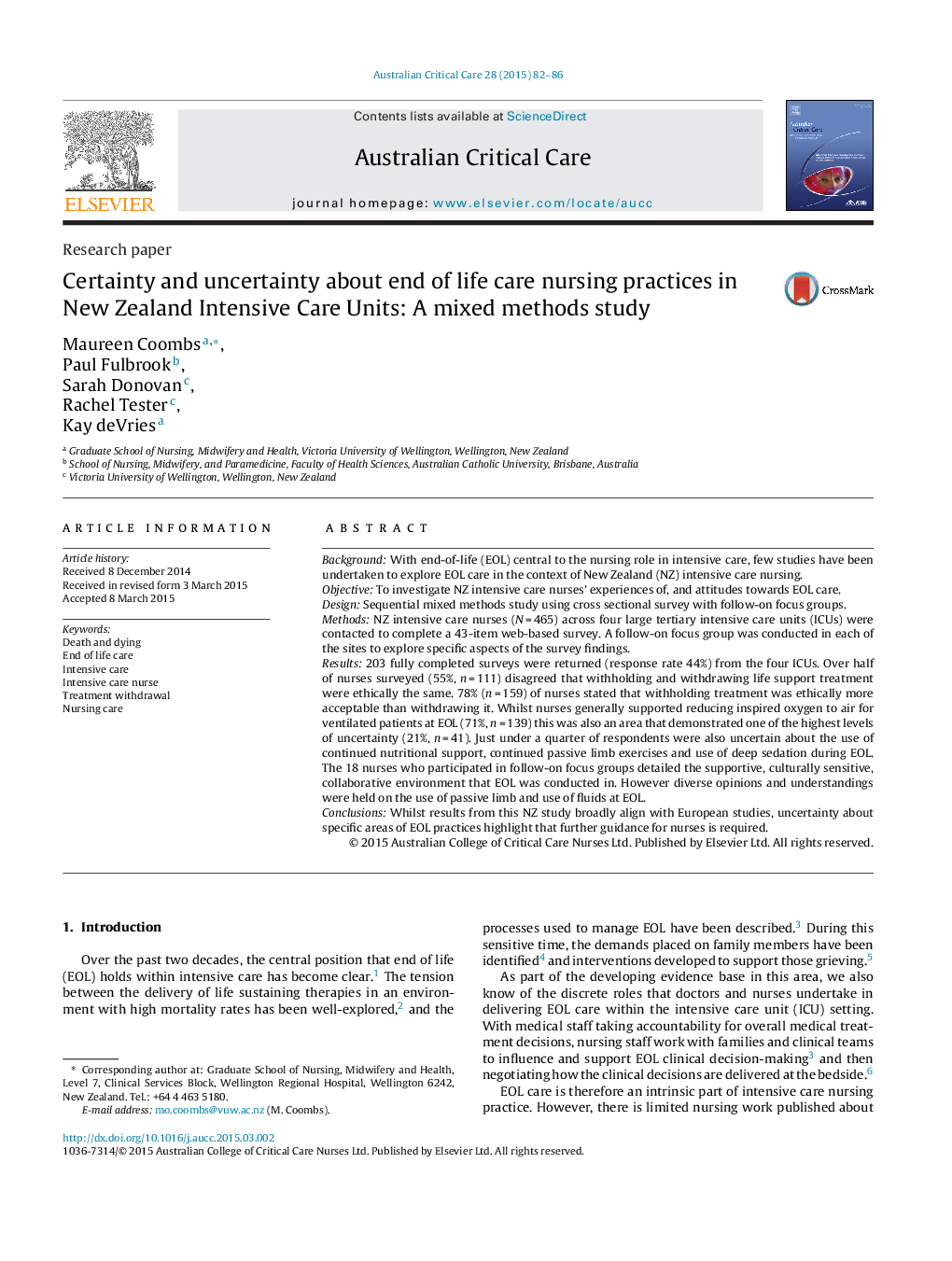| کد مقاله | کد نشریه | سال انتشار | مقاله انگلیسی | نسخه تمام متن |
|---|---|---|---|---|
| 2606803 | 1134220 | 2015 | 5 صفحه PDF | دانلود رایگان |
BackgroundWith end-of-life (EOL) central to the nursing role in intensive care, few studies have been undertaken to explore EOL care in the context of New Zealand (NZ) intensive care nursing.ObjectiveTo investigate NZ intensive care nurses’ experiences of, and attitudes towards EOL care.DesignSequential mixed methods study using cross sectional survey with follow-on focus groups.MethodsNZ intensive care nurses (N = 465) across four large tertiary intensive care units (ICUs) were contacted to complete a 43-item web-based survey. A follow-on focus group was conducted in each of the sites to explore specific aspects of the survey findings.Results203 fully completed surveys were returned (response rate 44%) from the four ICUs. Over half of nurses surveyed (55%, n = 111) disagreed that withholding and withdrawing life support treatment were ethically the same. 78% (n = 159) of nurses stated that withholding treatment was ethically more acceptable than withdrawing it. Whilst nurses generally supported reducing inspired oxygen to air for ventilated patients at EOL (71%, n = 139) this was also an area that demonstrated one of the highest levels of uncertainty (21%, n = 41). Just under a quarter of respondents were also uncertain about the use of continued nutritional support, continued passive limb exercises and use of deep sedation during EOL. The 18 nurses who participated in follow-on focus groups detailed the supportive, culturally sensitive, collaborative environment that EOL was conducted in. However diverse opinions and understandings were held on the use of passive limb and use of fluids at EOL.ConclusionsWhilst results from this NZ study broadly align with European studies, uncertainty about specific areas of EOL practices highlight that further guidance for nurses is required.
Journal: Australian Critical Care - Volume 28, Issue 2, May 2015, Pages 82–86
